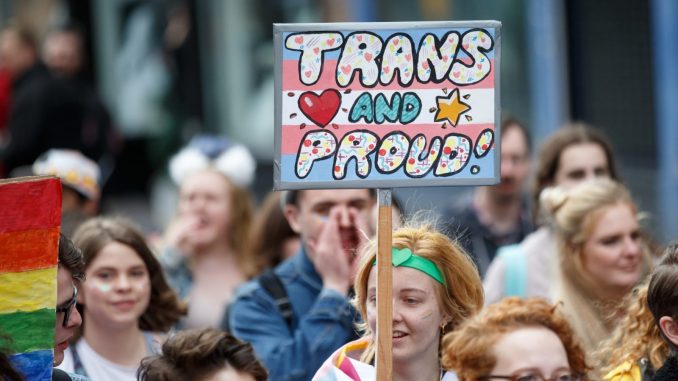
- The Scottish government is pushing for easier application process for people to change their gender legally.
- The new proposal includes the removal of medical evidence and the required two years of living in new gender.
- LGBT advocates welcomed the new initiative.
The Scottish government pushes for easier process in securing legal gender recognition according to the Press Association published in the Evening Express last November 9.
“Scotland rightly has a reputation as one of the most progressive countries in relation to LGBTI legal and human rights equality in Europe – but we need to do more to progress equality for trans people,” Equities Secretary Angela Constance said.
It has launched a consultation with the goal of updating key outdated rules established by the UK Gender Recognition Act 2004. In an earlier transgender related news last month, the British Prime Minister Theresa May had announced similar initiative on amending existing guidelines on legal gender recognition for transgender people in UK.
The consultation will focus on the status of non-binary people, individuals who neither identify as male or female, and the nature of recognition appropriate for them.
Additionally, among the proposed changes will be the removal of intrusive and onerous requirement during the application process as well as the lowering of age from 18 to 16 for people to be able to apply for gender change.
Currently, transgender people are required to present medical evidence and must have at least lived in their new gender for two years.
Legal gender recognition, according to the proposal, will now be based on self-declaration, whereby the application will be granted solely on the basis of declaration or statement of the applicant.
“Both our Fairer Scotland action plan and this year’s programme for government commit to renewing the 2004 Gender Recognition Act,” Constance continued. “This Act was once considered ahead of its time but it now needs updated so we can ensure we are creating a fairer Scotland for those who are transgender and non-binary.”
Constance stated that in establishing a wide-ranging consultation, legislators can create a law that fits the purpose and conforms to international standards on the treatment of transgender and non-binary people.
She said, “This is a vital conversation and one which will ensure transgender and non-binary people in Scotland are treated with dignity, fairness and respect.”
The initiative was welcomed by advocates and LGBTI organizations including the Scottish Trans Alliance, Euqality Network, LGBT Youth Scotland and Stonewall Scotland.
Scottish Trans alliance manager James Morton commended the proposal, saying, “The current process to change the gender on a trans person’s birth certificate is a humiliating, offensive and expensive red-tape nightmare which requires them to submit intrusive psychiatric evidence to a faceless tribunal panel years after they transitioned.”
“It makes sense for birth certificates to be brought into line with the self-declaration process already used to change all other identity documents when trans people start living in their gender identity,” Morton further explained. “Being able to change the gender on their birth certificate to match their other identity documents is important primarily to uphold trans people’s privacy and dignity but also to ensure that their pensions, insurance policies, civil partnerships and marriages are all administered correctly.”
Colin Macfarlane, director of Stonewall Scotland, also received the news positively. “We believe a better Gender Recognition Act is a crucial next step in achieving equality for all trans people and will help reduce the discrimination and abuse that is all too prevalent in our society.”



Be the first to comment